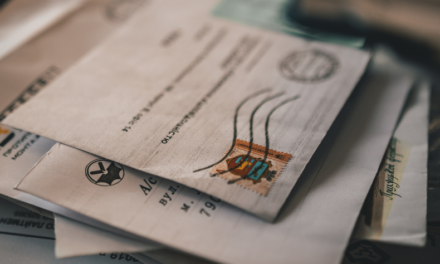
Returning an advance on the costs of insolvency proceedings – practical problems

Conducting bankruptcy proceedings always entails certain costs, which should be paid by the trustee’s hands from the insolvency funds.
TWO TYPES OF INSOLVENCY PROCEEDINGS COSTS
The bankruptcy law distinguishes two types of these costs, namely costs directly related to securing, administering and liquidating the assets (trustee’s remuneration, correspondence costs, taxes, etc.). – Article 230(1) of the Bankruptcy Act) and the so called “other liabilities of the bankruptcy estate” (e.g. receivables from the employment relationship or unjustified enrichment – art. 230(2) of the Bankruptcy Act). This catalogue is not a closed one, as evidenced by the phrase “in particular” used by the legislator. The division of the costs of proceedings into the above mentioned categories is important in the context of the order in which they were satisfied from the funds of the mass. First, the trustee pays the receivables directly related to the security, management and liquidation of the mass, and only then other liabilities. However, it may happen that the funds prove to be insufficient – their condition will not allow the costs of proceedings to be satisfied. The above will constitute a premise for discontinuing the proceedings (Article 361(1)(1) of the Bankruptcy Act). In such a situation it may be reasonable to find an alternative source of financing for the proceedings in progress.
Advance payment for the costs of proceedings
The trustee who manages a bankruptcy estate without liquid assets is offered an advance payment for the costs of bankruptcy proceedings (Article 232 of the Bankruptcy Act). If necessary, the judge-commissioner may either convene a meeting of creditors in order to adopt an appropriate resolution or simply oblige the largest creditors to make an advance payment.
In practice, the above actions are taken by the judge-commissioner at the request of the trustee, as it is the trustee who has the best knowledge of the state of the mass funds. It should be noted that the “obligation” to make an advance payment does not create debt on the part of the creditors of the mass funds (see R. Adamus, Bankruptcy Law. Commentary, Warsaw 2019). However, the refusal to pay it may result in the poverty of the bankruptcy estate and, consequently, lead to the discontinuance of proceedings.
The question arises – is the advance payment of the costs of the proceedings itself a cost? Such a postulate appeared in the doctrine on the grounds of the old law (then Art. 230 Bankruptcy Act), which included the costs of proceedings more broadly than is currently the case. F. Zedler expressed the view that an advance payment for the costs of the proceedings is in itself a cost of the proceedings and that it should be repaid to the creditor because it should be repaid from the funds of the bankruptcy estate in the first place (Article 231(1) Bankruptcy Act), and because of the nature of bankruptcy proceedings – satisfaction of creditors (F. Zedler, A. Jakubecki, Bankruptcy and Restoration Law. Commentary, LEX 2011). However, at present it seems that the advance payment does not constitute a cost of the proceedings. This is Bankruptcy Act restricting the concept of the costs of proceedings and the incomplete nature of the obligation to make an advance payment (it is up to the creditor to make it or not).
Reimbursement of an advance payment, practical problems
As a rule, the advance payment is returned to the creditor, but only if the state of the mass funds allows it (Article 233, 2nd sentence of the Bankruptcy Act). The provision drafted in this way determines that an advance payment is subsidiary to the costs of proceedings. However, the condition contained in the said provision does not strictly determine the order in which individual claims will be satisfied. Its fulfilment means that the receiver is obliged to return it to the creditor, which does not mean that he should do so only after the remaining costs have been satisfied. The doctrine points to the functional coupling of the advance payment with the purpose for which it was made. As Mr. Zimmerman writes, the advance payment made in order to cash in the hard to transferable components of the mass should be returned (if the funds allow it) on an ongoing basis, and so should the costs of the proceedings.
The issue of returning an advance payment may be related to a practical problem. It is possible to imagine a situation in which the trustee will return the advance payment and then it will turn out that the mass funds did not allow for its coverage. Such a case may occur, for example, as a result of a decision issued by the Social Insurance Institution (ZUS), which determines the social insurance coverage and the obligation to pay contributions for the period after the declaration of bankruptcy (social insurance contributions on salaries of persons employed by the trustee are the costs of the proceedings). In such a situation, it turns out that the advance payment was repaid despite the failure to meet the condition of Article 233, second sentence, of the Bankruptcy Act.
It is difficult to give an unequivocal answer to the question of to do in such a situation. On the one hand, it seems that in such case the provisions of Articles 405 and 410 of the Civil Code governing unjust enrichment may apply. Indeed, when applying the literal interpretation one may come to the conclusion that the creditor’s benefit was granted without a legal basis (contrary to the second sentence of Article 233 Bankruptcy Act). On the other hand, the principle of optimisation (Article 2 of the Bankruptcy Act), which is the essence of bankruptcy proceedings, i.e. satisfaction of creditors to the highest possible degree, cannot be omitted from this account. The creditor’s insistence that an advance payment already effectively returned (sic!) must not stand still from the point of view of purposeful interpretation. Moreover, given the specific nature of the obligation to make an advance payment, it should be noted that the institution of repayment of a benefit of this kind already repaid is not known under bankruptcy law. In such a situation, it would be more appropriate (and much simpler) for the trustee to apply for another advance payment from creditors.










